At McCallum Place, located in St. Louis, Missouri, and Overland Park, Kansas, we offer an intensive outpatient program (IOP) for adults age 18 and older who have a variety of eating disorders. This program can be ideal for individuals who need a more structured level of care than traditional outpatient programming provides but do not require partial hospitalization.
Our adult intensive outpatient program is flexible and allows individuals to fulfill their daily obligations, such as going to work or taking care of their families, while also receiving the services they need to heal. At this level of care, patients can engage in psychotherapy and skill-based groups, meal planning with trained staff, and comprehensive nutrition education.
Our Intensive Outpatient Program Focus
Our IOP is focused on:
- Community integration
- Desensitization (dealing with triggering situations)
- Developing independence
- Practicing coping skills
- Decreasing level of care
- Developing healthy eating patterns
- Developing healthy exercise patterns
- Increasing healthy attitudes toward weight, eating and appearance
IOP includes:
- Two psychotherapy groups
- Weight and behavioral monitoring
- One meal per day attended
- One weekly session with an eating disorder psychologist or therapist
- One weekly session with a registered dietitian
IOP Schedules
In the adult IOP, patients are required to participate in programming a minimum of three days per week. Typically, we recommend that patients take part in treatment five days a week when they first begin the IOP. During the program, they may have the opportunity to practice food preparation, participate in grocery store outings, and eat supported meals at local restaurants.
Virtual IOP
At McCallum Place, we understand the importance of offering flexible care for individuals who require outpatient services, which is why we provide a virtual intensive outpatient program for adults age 18 and older. In our virtual IOP, we provide comprehensive support that is tailored to adult patients, whether they are beginning their healing journey at the intensive outpatient level or stepping down from our partial hospitalization program (PHP).
Virtual intensive outpatient programs can extend the reach of essential services, making care more accessible, convenient, and inclusive for individuals who have diverse backgrounds and circumstances.
Our virtual intensive outpatient program for mental health concerns can benefit a wide range of people, including:
- Those who have limited mobility
- Individuals who live in remote areas
- Busy professionals
- College students
- Parents or caregivers
- Those who are suffering from anxiety or other co-occurring concerns
Through virtual programming, we leverage the benefits of telehealth therapy to ensure effective and convenient care for our patients. Key benefits of our virtual intensive outpatient program include:
- Accessibility: Telehealth services can reduce barriers to care for people who live in distant locations, lack transportation, or find it challenging to attend in-person therapy sessions due to limited mobility related to physical disabilities or chronic health conditions. Our virtual programming allows individuals to access care from the comfort of their homes, reducing logistical concerns and promoting more active involvement in therapy.
- Flexibility: Virtual intensive outpatient programming offers flexibility in scheduling, helping those in need balance therapy with professional, academic, and family obligations. In our virtual IOP, patients can take part in virtual therapy sessions at convenient times, which can help them prioritize their well-being without disrupting their daily routines.
- Privacy and comfort: Our virtual intensive outpatient program for mental health concerns offers a safe and secure environment, enhancing confidentiality for those who may face barriers to seeking in-person therapy due to fear of discrimination or judgment. Virtual programming provides a more discreet option for these individuals to access support while ensuring their privacy.
- Continuity of care: Telehealth ensures continued access to care during times of unexpected disruptions, like inclement weather or sickness. Patients in our virtual IOP can receive continuous support from our team throughout the program, which can promote consistency and momentum in their healing journey.
Our team utilizes innovative services, like telehealth programming, to deliver exceptional care that meets the unique needs of every patient. Our virtual intensive outpatient programming is customized for each person and designed to empower patients to work toward healing with confidence.
Those in the virtual intensive outpatient program can expect to receive the same high-quality services that are offered in our in-person IOP. The main method of care in our virtual intensive outpatient program is group therapy. Engaging in group therapy sessions is an integral part of our IOP because it fosters social connection, understanding, and peer support. Through a secure videoconferencing platform, our patients can participate in discussions and skill-building activities led by experienced therapists.
Individualized care plans in the IOP may also include evidence-based modalities like cognitive behavioral therapy, dialectical behavior therapy, and motivational interviewing. By utilizing research-backed practices, we can provide interventions that have proved to yield positive outcomes and promote the well-being of our patients, even in a virtual setting.
Our virtual intensive outpatient program takes place Monday, Wednesday, and Friday from 9 a.m.-12:30 p.m. To learn more about the benefits of virtual programming and whether telehealth options are the best fit for you, reach out to our team today.
















